and also has many pages of question-supporting datasheets with photos or graphics!
TENNESSEE BURGLAR ALARM
TENNESSEE FIRE ALARM
QUALIFYING AGENT LICENSE EXAMINATION
Licensing application and test information,
business
consultation & license test study guide material!
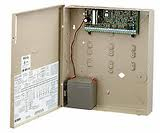

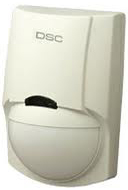
LICENSING DETAILS
Alarm Contractor Company
No person or company shall engage in or hold themselves out as engaging in the
business of an alarm systems contractor without first being certified by the Board.
In order to obtain certification as an alarm systems contractor the
company must submit application for certification to the Board.
Such application shall document that the applicant has in its employ a "Designated Qualifying Agent"
who is licensed by the Board, and is in a management position,
responsible for overseeing the quality of operations of the alarm systems contractor.
This individual must be licensed in the same classifications (i.e. FIRE, BURGLAR, CCTV, MONITORING)
as the applicant for company certification in order to obtain company certification in those categories.
The company applicant shall provide documentation of the required city and/or county business tax licenses,
and shall provide a certificate of insurance documenting compliance with the requirements set forth in T.C.A. 62-32-315.
The renewal period is every two (2) years.
An individual qualified to oversee and supervise alarm systems contractor operations including offers to sell,
install, service or monitor alarm systems, signal devices, fire alarms, burglar alarms, television cameras or still
cameras used
to detect fire, burglary, breaking and/or entering, intrusion, shoplifting, pilferage or theft.
The license is for a specific classification (FIRE, BURGLAR, CCTV, MONITORING).
"Designated Qualifying Agent" - the Qualifying Agent designated by the
certified contractor to be responsible for compliance with state law.
General Requirements
Be at least 18 years of age
Be of good moral character
Be employed by a certified alarm contractor
Satisfy experience, education and examination requirements.
Experience & Educational Requirements
- Hold a 4 year baccalaureate degree in electrical engineering from an accredited university
or college acceptable to the Board and have two years of experience in the alarm industry OR - Hold an associates degree in engineering technology from an accredited two-year technical
college acceptable to the Board with at least four years of actual experience in the alarm industry OR - Hold a current certification by a national training program approved by the Board in the field
of work to be installed, serviced or monitored and have at least five years working
experience in the alarm industry covering the actual installation or monitoring of alarms.
Examination Requirements
Qualifying Agents must pass an examination designed to measure knowledge
and competence in each classification for which they have applied.
License testings secret #1:
Understand that you must know the data needed to pass
every one of several different 5-hour 100-question testings
as to be able to pass whichever is assigned to you
(so knowing only 100 questions is a waste of time!)
Call 818-883-6969 for the new  lower price on this popular package!
lower price on this popular package!
--each version of the state's Burglar Alarm test might have
different topics, and our TN Burglar Alarm Company packages
have study material and business help information about:
basic electricity; all standards and codes; control devices;
alarm transmissions; motion detection; perimeter systems;
access control; CCTV systems; job planning;
proximity alarms, monitoring, administration,
Kirchoff's Law, expired license, sound detection systems, grounds,
alarm contacts, office regulations, business practices, techniques,
smoke beams, service, open, closed, shorts, central stations, management,
National Electrical Code, CCTV, programing, PIRs, IP systems, doubling voltage,
Ohm's Law, business management, diodes, voltage,
sexual harassment, protective loops, system diagrams, circuits,
OSHA, cross-zoning, insurance, service calls, liens,
gap width, grounding, sirens, DC-09 Standard, ferrite beads,
EOL resistors, parallel, AWG differences, disciplinary proceedings, UL, prohibited acts,
extent of protection, grounded, continuity, voltage drop,
US employment eligibility, repair, access, smoke alarms, languages, photoelectric beams,
battery tests, symbols, false alarm reduction, consultation, installation, service, ladders,
safety, supervised loops, devices normally closed, defense, employee registration requirements,
wire type, eye protection, double-closed, RJ-xx differences, privacy,
tax withholding, safety, verification, receivers, devices normally open, resistors, related laws,
prohibited acts and citations, monitoring, signal, glass breaks, AC Agents, serial, motion detectors,
conduct of business, legal proceedings, ladders, alarm activations, digital communicators,
outside bell time, shorts, wire types, wire length,
extents, repair, bell time-outs, supervised loops,
openings, alarm agent registration, microwave, 1099s,contract cancellations, deposit refunds,
backup batteries, pet-friendly intrusion-detection devices, infrared, combination detectors,
CO carbon monoxide detectors, magnetic alarm contacts, motion sensors, glass-break detectors,
safe/vault extent complete, verified alarm systems, ATM/night-depository protection, parallel wiring,
series/serial wiring, plenum spaces, shunts, plenum cabling, classes of cables, branch offices,
auxiliary outputs, cable rating, employee death, ladder choices, DSL, telephone line seizure,
Central Station communication methods, NFPA 730,
the most common general false alarm causes,
false alarms from PIRs, plunger sensors, power supplies, supervision, false alarms,
bells, responding to alarms, audio discriminators, plunger switches, microwave sensors, monostatic sensors,
bistatic sensors, Central Station requirements to be UL listed, client education , RJ31X details,
RJ31X installation, RJ31X client notification, alarm system power supplies, ultrasonic motion detectors,
home-run wiring, changing a back-up battery without a disable code, alarm permits, service loops,
common wiring used with alarm systems, load-testing a back-up battery, conduit differences,
types of alarm keypads, alarm keypad placement, listen-in monitoring,
CP-01 Standards, Alarm System -to- Central Station communication protocols, DTMF, Contact ID, FSK SIA,
Pulse 4/2, basic alarm troubleshooting, cable/wiring 'tips' to reduce false alarms, distant devices,
intercom installations, the 4 keypad wire colors and what each is for, magnetic switches,
entry/exit delays,
Doppler, advantages of wireless systems, advantages of wired systems,
factors that affect placement of interior detection devices,
factors that affect placement of perimeter detection devices,
assessing a customer's alarm system needs and expectations, photoelectric sensors, dual-technology sensors,
strange things that have caused false alarms, third-party monitoring, lying on an application,
suing your alarm clients in court, persons required to be in charge of offices and branch offices,
alarm foil window tape, annunciators, weakest point of an alarm system, ferrite rings and beads,
Average life expectancy comparison: magnetic switches vs micro switches, alarm pressure mats,
A difference in wiring that many don't know-- fire alarm circuits vs burglar alarm circuits, anti-tamper switches,
wiring at baseboards, oral agreements vs written agreements, programmable ringer shut-off times, xyz dialers,
reed switches, residential sales agreements, alarm zones, long runs of wire, being UL Approved,
abandoning an alarm installation plan, license posting requirements, Mechanic's Liens, required disclosures,
NFPA 731, contracts, fire technology; job safety; and more.
(Of course we don't list all the secrets topics here, or you might not call for our material!)
Updated for !
!

These additional options are often available-- ask for details:



License testings secret #2:
Many test-takers do the worst on
BUSINESS MANAGEMENT type questions.
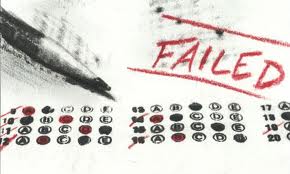
Records - Employees - Legal Requirements
Studying helps prepare you for these-- and much more!
Ask about the 'special help' if you have already failed this test!
 We are NOT a boring seminar!
We are NOT a boring seminar!
We are NOT a boring online prep! 
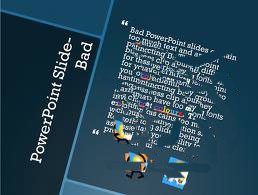 We are NOT a pdf download!
We are NOT a pdf download!
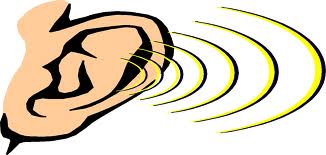 We hear the same thing, every week:
We hear the same thing, every week:
"The material from the State didn't help at all".
- or -
"The stuff the State sent me was only good for a few of the questions".
- or -
"I have failed the license test 3 times, and each time it was a different test".
Well, this is TRUE. And here's why-it-is-what-it-is.
The State is here to regulate you, NOT to educate you.
They provide you information on things that they can fine ($) you for.
They do NOT help you with the majority of the test.
It is an 'experienced-based' examination.
Most of the test is about knowledge you supposedly have from not only from
alarm work, but also from running a business and from being an employer.
The truth is: you do not know most of these things, causing most to fail.
License testings secret #1:
Understand that you must know the data needed to pass
every one of several different 5-hour 100-question testings
as to be able to pass whichever is assigned to you
(so knowing only 100 questions is a waste of time!)
Call 818-883-6969 for the new  lower price on this popular package!
lower price on this popular package!
--each version of the state's Burglar Alarm test might have
different topics, and our TN Burglar Alarm Company packages
have study material and business help information about:
basic electricity; all standards and codes; control devices;
alarm transmissions; motion detection; perimeter systems;
access control; CCTV systems; job planning;
proximity alarms, monitoring, administration,
Kirchoff's Law, expired license, sound detection systems, grounds,
alarm contacts, office regulations, business practices, techniques,
smoke beams, service, open, closed, shorts, central stations, management,
National Electrical Code, CCTV, programing, PIRs, IP systems, doubling voltage,
Ohm's Law, business management, diodes, voltage,
sexual harassment, protective loops, system diagrams, circuits,
OSHA, cross-zoning, insurance, service calls, liens,
gap width, grounding, sirens, DC-09 Standard, ferrite beads,
EOL resistors, parallel, AWG differences, disciplinary proceedings, UL, prohibited acts,
extent of protection, grounded, continuity, voltage drop,
US employment eligibility, repair, access, smoke alarms, languages, photoelectric beams,
battery tests, symbols, false alarm reduction, consultation, installation, service, ladders,
safety, supervised loops, devices normally closed, defense, employee registration requirements,
wire type, eye protection, double-closed, RJ-xx differences, privacy,
tax withholding, safety, verification, receivers, devices normally open, resistors, related laws,
prohibited acts and citations, monitoring, signal, glass breaks, AC Agents, serial, motion detectors,
conduct of business, legal proceedings, ladders, alarm activations, digital communicators,
outside bell time, shorts, wire types, wire length,
extents, repair, bell time-outs, supervised loops,
openings, alarm agent registration, microwave, 1099s,contract cancellations, deposit refunds,
backup batteries, pet-friendly intrusion-detection devices, infrared, combination detectors,
CO carbon monoxide detectors, magnetic alarm contacts, motion sensors, glass-break detectors,
safe/vault extent complete, verified alarm systems, ATM/night-depository protection, parallel wiring,
series/serial wiring, plenum spaces, shunts, plenum cabling, classes of cables, branch offices,
auxiliary outputs, cable rating, employee death, ladder choices, DSL, telephone line seizure,
Central Station communication methods, NFPA 730,
the most common general false alarm causes,
false alarms from PIRs, plunger sensors, power supplies, supervision, false alarms,
bells, responding to alarms, audio discriminators, plunger switches, microwave sensors, monostatic sensors,
bistatic sensors, Central Station requirements to be UL listed, client education , RJ31X details,
RJ31X installation, RJ31X client notification, alarm system power supplies, ultrasonic motion detectors,
home-run wiring, changing a back-up battery without a disable code, alarm permits, service loops,
common wiring used with alarm systems, load-testing a back-up battery, conduit differences,
types of alarm keypads, alarm keypad placement, listen-in monitoring,
CP-01 Standards, Alarm System -to- Central Station communication protocols, DTMF, Contact ID, FSK SIA,
Pulse 4/2, basic alarm troubleshooting, cable/wiring 'tips' to reduce false alarms, distant devices,
intercom installations, the 4 keypad wire colors and what each is for, magnetic switches,
entry/exit delays,
Doppler, advantages of wireless systems, advantages of wired systems,
factors that affect placement of interior detection devices,
factors that affect placement of perimeter detection devices,
assessing a customer's alarm system needs and expectations, photoelectric sensors, dual-technology sensors,
strange things that have caused false alarms, third-party monitoring, lying on an application,
suing your alarm clients in court, persons required to be in charge of offices and branch offices,
alarm foil window tape, annunciators, weakest point of an alarm system, ferrite rings and beads,
Average life expectancy comparison: magnetic switches vs micro switches, alarm pressure mats,
A difference in wiring that many don't know-- fire alarm circuits vs burglar alarm circuits, anti-tamper switches,
wiring at baseboards, oral agreements vs written agreements, programmable ringer shut-off times, xyz dialers,
reed switches, residential sales agreements, alarm zones, long runs of wire, being UL Approved,
abandoning an alarm installation plan, license posting requirements, Mechanic's Liens, required disclosures,
NFPA 731, contracts, fire technology; job safety; and more.
(Of course we don't list all the secrets topics here, or you might not call for our material!)
 !
!

These additional options are often available-- ask for details:



License testings secret #2:
Many test-takers do the worst on
BUSINESS MANAGEMENT type questions.

Records - Employees - Legal Requirements
Studying helps prepare you for these-- and much more!
Ask about the 'special help' if you have already failed this test!
 We are NOT a boring seminar!
We are NOT a boring seminar! We are NOT a boring online prep!

 We are NOT a pdf download!
We are NOT a pdf download! We hear the same thing, every week:
We hear the same thing, every week:"The material from the State didn't help at all".
- or -
"The stuff the State sent me was only good for a few of the questions".
- or -
"I have failed the license test 3 times, and each time it was a different test".
Well, this is TRUE. And here's why-it-is-what-it-is.
The State is here to regulate you, NOT to educate you.
They provide you information on things that they can fine ($) you for.
They do NOT help you with the majority of the test.
It is an 'experienced-based' examination.
Most of the test is about knowledge you supposedly have from not only from
alarm work, but also from running a business and from being an employer.
The truth is: you do not know most of these things, causing most to fail.
License testings secret #3
Watch out for these types of answer choices:
SIMILAR ANSWER CHOICES

Sometimes more than one answer choice
will look the same-- but there will be
a small
difference if you look close!
Studying helps prepare you for these-- and much more!
------On each of the 5-hour 100-question testings------
ACTUAL TENNESSEE BURGLAR ALARM SYSTEMS
QUALIFYING AGENT EXAMINATION TEST TOPICS!
(There are 100 questions in each version of this 5-hour test)
Scope of testing:
An Alarm System Qualifying Agent is an individual qualified
to oversee and supervise alarm systems contractor operations
including offers to sell, install, service or monitor alarm systems,
signal devices, fire alarms, burglar alarms, television cameras or still cameras
used to detect fire, burglary, breaking and/or entering, intrusion, shoplifting, pilferage or theft.
A burglar alarm system is an alarm or monitoring system that has the primary
function of detecting and/or responding to emergencies other than fire.
General Knowledge and Theory:
10 questions
Requirements for Electrical Installation: 10 questions
Wiring Methods and Materials:
10 questions
State Licensing Laws and Rules:
40 questions
Application of Burglar Alarms:
30 questions
License testings secret #4:
Many test-takers have a tough time
with this type of answer choices:
'Choose the BEST answer'.

You might find questions where more
than one of the answer choices is correct.
But one choice is a little better than the others.
Studying helps prepare you for these-- and much more!
Click here for a license application for

a Tennessee Burglar Alarm Systems Qualifying Agent license:
http://www.tn.gov/regboards/asc/forms.shtml#Applications
Call us to discuss if your background should count towards this license!
 we can make you a simple webpage FREE!
we can make you a simple webpage FREE!(If you don't have a webpage, the public & businesses can't find you to hire you.)
 Call us for the 'secret' about the colored
Call us for the 'secret' about the colored
piece of scratch-paper you might be issued at the test! 818-883-6969


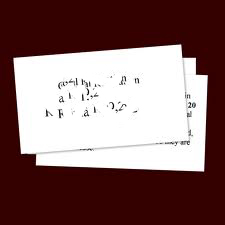
This package includes many pages of 'giant (8 1/2'' X 11'') paper flashcards' of
Alarm questions with answers and/or other Alarm business knowledge!
Some of the EXACT topics of many of these 'giant flashcards' are on this page.
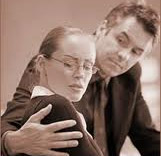

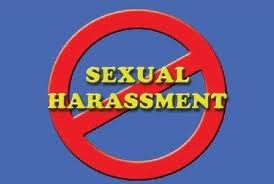
Now includes a 'Sexual Harassment In The Workplace' section!
Important not just because there are might be license test questions
about sexual harassment, but also because this can be a source
of lawsuits against licensed companies and their clients.
Including datasheets of:
--What is Sexual Harassment?
--Examples of Sexual Harassment
--Methods to reduce or prevent Sexual Harassment
--What is 'Quid Pro Quo' Sexual Harassment?
--What is 'Hostile Workplace Sexual Harassment'?
--Federal government-issued information about sexual harassment
---and more!
Call 818-883-6969 for the new lower price on this package!
lower price on this package!
Call for your UPS tracking number ONE HOUR after we receive your order!

--copies of public-domain state & federal documents and
other items
provided as a courtesy and at no additional cost to you;
some have been improved from their original presentation into better for your use!
--


Our copyrighted and very thorough
Tennessee Burglar Alarm Systems Qualifying Agent Study Material
& Application
almost-5-pound 2014 'TN Burglar Alarm Company Package'
INCLUDES:
(numbered below for easy discussion if you call us!)

 1. --an improved version of --
1. --an improved version of --
This new 2014 TN Burglar Alarm Systems Qualifying Agent edition
also includes
more than 100 pages of datasheets with photos or graphics!


 2. ***--More than 100 printed Alarm study questions with verified-correct
2. ***--More than 100 printed Alarm study questions with verified-correct
answers,
in a 'test-yourself' format (answers are separate from the questions)***



 3. ***--More than 100 supporting pages of datasheets of Alarm questions
3. ***--More than 100 supporting pages of datasheets of Alarm questions
and answers and/or data, with graphics or photos to help you retain their own information.
These are often refered to as 'Giant (8 1/2'' X 11'') Paper Flashcards'!
(Many are test topics or 'tricks of the trade' or procedures
that most new Alarm techs don't know)--***
4. ***--and more!--***
Lots of graphics enhance our  TN alarm study material!
TN alarm study material!
Got 10 minutes? Call 818-883-6969 for the most
valuable Alarm phone conversation you will ever have!

BEWARE OF USING THE WRONG MATERIAL TO PREPARE WITH!
1. Beware of generic 'covers all states' licensing test advice!
2. OUCH! Taking advantage of excited viewers of those several exaggerated
TV shows about how cool the alarm business is, some people are making big
$$$$$ by selling 'Anyone Can Start A Great Business"-type books:
but
they fail to advertise that specific paid experience in TN is required first!
Call us for the exact licensing requirements, even for application help.
We also include some
 and
and 
idea pages, to get your thinking going!
 Avoid the clowns.
Avoid the clowns.
Avoid the phonies. 
Only www.thePIgroup.com has our 2015
Tennessee
Burglar Alarm Systems Qualifying Agent study material package!
We have helped more than 4000 pass their state licensing tests nationwide--
more than 400 in the past year.
Nobody else has even helped 30 to pass in the last year!
Our material includes 'trigger questions' (related sample questions
that are not actually connected to any of the multiple alarm license tests,
planted within as to later prove plagiarism-- catches our competitors every time!)
A SECRET:
Reading our printed paper TN Alarm materials, over and over,
studying around your daily duties, or sitting in your car, or even while resting in bed,
is FAR more effective then trying to study on-line or at a 'seminar'.
Do one final review while parked outside the test center for your TN license test!
YOUR IP ADDRESS IS 86.245.234.120
(YOUR VISIT HAS BEEN LOGGED)
Simulated Testing for the
Tennessee Burglar Alarm Systems Qualifying Agent license test

Also available is our on-line text that includes simulated practice license test questions
for the Tennessee Burglar Alarm Company Qualifying Agent license examination test,
a simulator to a computer-testing as it advises time limitations to answer each.
See www.thePIgroup.com/seminars.htm for more information about this option.
FlashCards

Also available are our FlashCards of vocabulary and practice license test questions
for the Tennessee Burglar Alarm Systems Qualifying Agent license examination test.
Pocket-sized as to study anywhere you go,
they include instructions for studying them using the 'Leitner System'
(a proven way of increasing the retention of data from flash cards).
These are NOT generic garbage 'nationwide alarm' flashcards!
We 
 questions!
questions!
Some who complain about failing license tests say there was 'answers open to opinion'!
We agree-- tests should use questions of definite answers, never opinions.
What if your experience gives you a different opinion on a
question than the test writer has? YOU get it wrong then!
Studying helps to prepare you for questions open to opinion.
 Fire alarm basics!
Fire alarm basics! 
Inserted randomly throughout the package
are educational materials about fire alarm systems.
Call (818) 883-6969 for more information

These additional options are often available-- ask for details:



Got 10 minutes? Call 818-883-6969 for the most
valuable alarm license test conversation you will ever had!
Included are copies of some public-domain state and/or federal documents
and
other items,
provided as a courtesy and at no additional cost to you;
some have been improved from their original presentation into better for your use!
 Call 818-883-6969 NOW!
Call 818-883-6969 NOW! 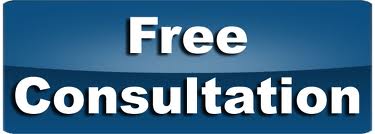
If you have failed the test, we have 'special help' for you.
If you haven't tested yet, we are experts with that too.
 Now also includes a 25-page
Now also includes a 25-page 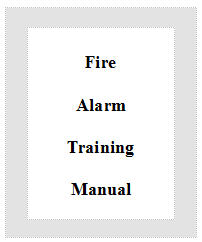 fire alarm training manual!
fire alarm training manual!
Updated for !
!
Tennessee Fire Alarm Qualifying Agent examination
Tennessee Burglar Alarm Qualifing Agent examination
Call (818) 883-6969
or e-mail to
thePIgroup@aol.com
for prompt assistance! 3/2017
All specifications subject to change with or without prior notice.
Page-counts and shipping-weights are approximate but are very close.
Send a money order or send a check;
we put long holds on orders paid by check. <<<<<<< see this
Need it faster? Call 818-883-6969.
www.thePIgroup.com
Yes, you saw us on  at:
at:
(click here:) Tennessee Burglar Alarm Systems Qualifying Agent license test information on YouTube
Call 818-883-6969 for the new lower price on this best selling package!
lower price on this best selling package!
HOME PAGE
Purchaser is licensed one copy of this material for purchaser's personal use.
Any other redistribution or reproduction is strictly prohibited.
All rights reserved. A purchase of this material is for our purchaser's sole use, and
is only to assist
that sole purchaser in his/her own new TN Alarm business and in
the preparation of taking his/her own upcoming licensing test. No portion of this material
may be reproduced, copied, sold, resold, shared, sold after purchaser's use, exploited,
stored
in an electronic
system, used for training of others, or transmitted in any form
or by
any means,
electronic, reworded, modified,
mechanical, photocopy,
recording, or otherwise.
It is solely intended for and sold only to applicants for this professional license.
It is expressly NOT for use, tutoring, duplication, training, adaption, or any other use by
other publishers or writers, teachers or instructors, coaching or preparatory entities,
testing agencies and certification agencies, any group use, or any government agency.
All specifications subject to change without prior notice.
32017-195
818-883-6969






ORDERING INFORMATION
1. Send a simple money order, and your package
goes out same-day money order is received,
(add $10 shipping, or we can use your UPS account)
or
2. Send a check, but
we put long holds on
orders paid by check <<< don't miss this,
(add $10 shipping, or we can use your UPS account)
or
3.From 1990 through early 2017, we took credit cards,
electronic payments, PayPal, Western Union, etc.
NO MORE.
We're tired of the 'bad numbers', the delays,
the costs,
the 'bank mistakes', the excuses, 'its my wife's fault', and so on.
We make too little on these 1200 page 13-pound packages.
So
unless we are to raise our prices for 2017, if you can't come in to
pick up
a package then there's only one way to send a shipment to you
if you need it faster then by sending payment by regular mail:
you simply overnight us a money order. It doesn't have to be a costly and
time-consuming one issued by a bank-- a grocery store or 7-11 money order is fine.
-- Only this one order type has  free shipping --
free shipping --
Call 818-883-6969 for more details! © www.thePIgroup.com
© www.thePIgroup.com Tennessee Burglar Alarm Systems Qualifying Agent license examination test study guide material and sample Tennessee Qualifying Agent test study questions



about sexual harassment, but also because this can be a source
of lawsuits against licensed companies and their clients.
Including datasheets of:
--What is Sexual Harassment?
--Examples of Sexual Harassment
--Methods to reduce or prevent Sexual Harassment
--What is 'Quid Pro Quo' Sexual Harassment?
--What is 'Hostile Workplace Sexual Harassment'?
--Federal government-issued information about sexual harassment
---and more!
 lower price on this package!
lower price on this package!
--copies of public-domain state & federal documents and
other items
provided as a courtesy and at no additional cost to you;
some have been improved from their original presentation into better for your use!
--


Our copyrighted and very thorough
Tennessee Burglar Alarm Systems Qualifying Agent Study Material
& Application
almost-5-pound 2014 'TN Burglar Alarm Company Package'
INCLUDES:
(numbered below for easy discussion if you call us!)

 1. --an improved version of --
1. --an improved version of --
This new 2014 TN Burglar Alarm Systems Qualifying Agent edition
also includes
more than 100 pages of datasheets with photos or graphics!


 2. ***--More than 100 printed Alarm study questions with verified-correct
2. ***--More than 100 printed Alarm study questions with verified-correct
answers,
in a 'test-yourself' format (answers are separate from the questions)***



 3. ***--More than 100 supporting pages of datasheets of Alarm questions
3. ***--More than 100 supporting pages of datasheets of Alarm questions
and answers and/or data, with graphics or photos to help you retain their own information.
These are often refered to as 'Giant (8 1/2'' X 11'') Paper Flashcards'!
(Many are test topics or 'tricks of the trade' or procedures
that most new Alarm techs don't know)--***
4. ***--and more!--***
also includes more than 100 pages of datasheets with photos or graphics!


 2. ***--More than 100 printed Alarm study questions with verified-correct
2. ***--More than 100 printed Alarm study questions with verified-correct
answers,
in a 'test-yourself' format (answers are separate from the questions)***



 3. ***--More than 100 supporting pages of datasheets of Alarm questions
3. ***--More than 100 supporting pages of datasheets of Alarm questions
and answers and/or data, with graphics or photos to help you retain their own information.
These are often refered to as 'Giant (8 1/2'' X 11'') Paper Flashcards'!
(Many are test topics or 'tricks of the trade' or procedures
that most new Alarm techs don't know)--***
4. ***--and more!--***
Lots of graphics enhance our  TN alarm study material!
TN alarm study material!
Got 10 minutes? Call 818-883-6969 for the most
valuable Alarm phone conversation you will ever have!

BEWARE OF USING THE WRONG MATERIAL TO PREPARE WITH!
1. Beware of generic 'covers all states' licensing test advice!
2. OUCH! Taking advantage of excited viewers of those several exaggerated
TV shows about how cool the alarm business is, some people are making big
$$$$$ by selling 'Anyone Can Start A Great Business"-type books:
but
they fail to advertise that specific paid experience in TN is required first!
Call us for the exact licensing requirements, even for application help.
We also include some
 and
and 
idea pages, to get your thinking going!
 Avoid the clowns.
Avoid the clowns.
Avoid the phonies. 
Only www.thePIgroup.com has our 2015
Tennessee
Burglar Alarm Systems Qualifying Agent study material package!
We have helped more than 4000 pass their state licensing tests nationwide--
more than 400 in the past year.
Nobody else has even helped 30 to pass in the last year!
Our material includes 'trigger questions' (related sample questions
that are not actually connected to any of the multiple alarm license tests,
planted within as to later prove plagiarism-- catches our competitors every time!)
A SECRET:
Reading our printed paper TN Alarm materials, over and over,
studying around your daily duties, or sitting in your car, or even while resting in bed,
is FAR more effective then trying to study on-line or at a 'seminar'.
Do one final review while parked outside the test center for your TN license test!

BEWARE OF USING THE WRONG MATERIAL TO PREPARE WITH!
1. Beware of generic 'covers all states' licensing test advice!
2. OUCH! Taking advantage of excited viewers of those several exaggerated
TV shows about how cool the alarm business is, some people are making big
$$$$$ by selling 'Anyone Can Start A Great Business"-type books:
but they fail to advertise that specific paid experience in TN is required first!
Call us for the exact licensing requirements, even for application help.
We also include some
 and
and 
idea pages, to get your thinking going!
 Avoid the clowns.
Avoid the clowns.Avoid the phonies.

Only www.thePIgroup.com has our 2015 Tennessee
Burglar Alarm Systems Qualifying Agent study material package!
We have helped more than 4000 pass their state licensing tests nationwide--
more than 400 in the past year.
Nobody else has even helped 30 to pass in the last year!
Our material includes 'trigger questions' (related sample questions
that are not actually connected to any of the multiple alarm license tests,
planted within as to later prove plagiarism-- catches our competitors every time!)
A SECRET:
Reading our printed paper TN Alarm materials, over and over,
studying around your daily duties, or sitting in your car, or even while resting in bed,
is FAR more effective then trying to study on-line or at a 'seminar'.
Do one final review while parked outside the test center for your TN license test!
(YOUR VISIT HAS BEEN LOGGED)
Simulated Testing for the
Tennessee Burglar Alarm Systems Qualifying Agent license test

Also available is our on-line text that includes simulated practice license test questions
for the Tennessee Burglar Alarm Company Qualifying Agent license examination test,
a simulator to a computer-testing as it advises time limitations to answer each.
See www.thePIgroup.com/seminars.htm for more information about this option.
FlashCards

Also available are our FlashCards of vocabulary and practice license test questions
for the Tennessee Burglar Alarm Systems Qualifying Agent license examination test.
Pocket-sized as to study anywhere you go,
they include instructions for studying them using the 'Leitner System'
(a proven way of increasing the retention of data from flash cards).
These are NOT generic garbage 'nationwide alarm' flashcards!
We 
 questions!
questions!
Some who complain about failing license tests say there was 'answers open to opinion'!
We agree-- tests should use questions of definite answers, never opinions.
What if your experience gives you a different opinion on a
question than the test writer has? YOU get it wrong then!
Studying helps to prepare you for questions open to opinion.
 Fire alarm basics!
Fire alarm basics! 
Inserted randomly throughout the package
are educational materials about fire alarm systems.
 Fire alarm basics!
Fire alarm basics! 
Inserted randomly throughout the package
are educational materials about fire alarm systems.

These additional options are often available-- ask for details:



Got 10 minutes? Call 818-883-6969 for the most
valuable alarm license test conversation you will ever had!
Included are copies of some public-domain state and/or federal documents
and other items, provided as a courtesy and at no additional cost to you;
some have been improved from their original presentation into better for your use!
 Call 818-883-6969 NOW!
Call 818-883-6969 NOW! 
If you have failed the test, we have 'special help' for you.
If you haven't tested yet, we are experts with that too.
 Now also includes a 25-page
Now also includes a 25-page  fire alarm training manual!
fire alarm training manual!
Updated for !
!
Tennessee Fire Alarm Qualifying Agent examination
Tennessee Burglar Alarm Qualifing Agent examination
Call (818) 883-6969
or e-mail to
thePIgroup@aol.com
for prompt assistance! 3/2017
All specifications subject to change with or without prior notice.
Page-counts and shipping-weights are approximate but are very close.
Send a money order or send a check;
we put long holds on orders paid by check. <<<<<<< see this
Need it faster? Call 818-883-6969.
www.thePIgroup.com
Yes, you saw us on  at:
at:
(click here:) Tennessee Burglar Alarm Systems Qualifying Agent license test information on YouTube
Call 818-883-6969 for the new lower price on this best selling package!
lower price on this best selling package!
HOME PAGE
Purchaser is licensed one copy of this material for purchaser's personal use.
Any other redistribution or reproduction is strictly prohibited.
All rights reserved. A purchase of this material is for our purchaser's sole use, and
is only to assist
that sole purchaser in his/her own new TN Alarm business and in
the preparation of taking his/her own upcoming licensing test. No portion of this material
may be reproduced, copied, sold, resold, shared, sold after purchaser's use, exploited,
stored
in an electronic
system, used for training of others, or transmitted in any form
or by
any means,
electronic, reworded, modified,
mechanical, photocopy,
recording, or otherwise.
It is solely intended for and sold only to applicants for this professional license.
It is expressly NOT for use, tutoring, duplication, training, adaption, or any other use by
other publishers or writers, teachers or instructors, coaching or preparatory entities,
testing agencies and certification agencies, any group use, or any government agency.
All specifications subject to change without prior notice.
32017-195
818-883-6969






ORDERING INFORMATION
1. Send a simple money order, and your package
goes out same-day money order is received,
(add $10 shipping, or we can use your UPS account)
or
2. Send a check, but
we put long holds on
orders paid by check <<< don't miss this,
(add $10 shipping, or we can use your UPS account)
or
3.From 1990 through early 2017, we took credit cards,
electronic payments, PayPal, Western Union, etc.
NO MORE.
We're tired of the 'bad numbers', the delays,
the costs,
the 'bank mistakes', the excuses, 'its my wife's fault', and so on.
We make too little on these 1200 page 13-pound packages.
So
unless we are to raise our prices for 2017, if you can't come in to
pick up
a package then there's only one way to send a shipment to you
if you need it faster then by sending payment by regular mail:
you simply overnight us a money order. It doesn't have to be a costly and
time-consuming one issued by a bank-- a grocery store or 7-11 money order is fine.
-- Only this one order type has  free shipping --
free shipping --
Call 818-883-6969 for more details! © www.thePIgroup.com
© www.thePIgroup.com Tennessee Burglar Alarm Systems Qualifying Agent license examination test study guide material and sample Tennessee Qualifying Agent test study questions






ORDERING INFORMATION
1. Send a simple money order, and your package
goes out same-day money order is received,
(add $10 shipping, or we can use your UPS account)
or
2. Send a check, but we put long holds on
orders paid by check <<< don't miss this,
(add $10 shipping, or we can use your UPS account)
or
3.From 1990 through early 2017, we took credit cards,
electronic payments, PayPal, Western Union, etc.
NO MORE.
We're tired of the 'bad numbers', the delays, the costs,
the 'bank mistakes', the excuses, 'its my wife's fault', and so on.
We make too little on these 1200 page 13-pound packages.
So unless we are to raise our prices for 2017, if you can't come in to
pick up a package then there's only one way to send a shipment to you
if you need it faster then by sending payment by regular mail:
you simply overnight us a money order. It doesn't have to be a costly and
time-consuming one issued by a bank-- a grocery store or 7-11 money order is fine.
-- Only this one order type has
Call 818-883-6969 for more details! © www.thePIgroup.com